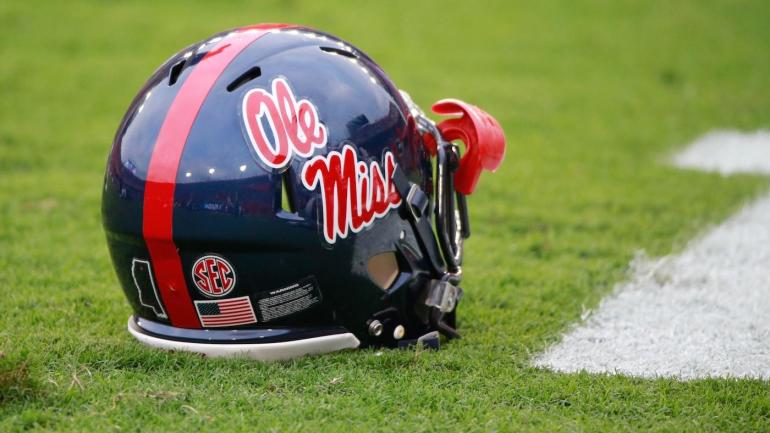
The final chapter in the Ole Miss recruiting scandal is complete, and it's a minor win for the Rebels. The school announced Thursday that the Infractions Appeals Committee lifted recruiting restrictions related to unofficial football visitors because the Committee on Infractions abused its discretion when levying restrictions of unofficial visitors because. The appeals committee ruled that the COI based its findings on "a significant part on one or more irrelevant or improper factors."
The COI had restricted the school to just one unofficial visit per prospect per academic year for the duration of the Ole Miss probation -- which is slated to end on Nov. 30, 2020.
The ability to host more unofficial visitors is a huge win for the program. Prospective student athletes routinely make multiple unofficial visits to schools, and committed prospects serve as some of the biggest recruiters to the program on big recruiting weekends.
It isn't all great news for the Rebels, though. The appeals committee did not lift the 2018 bowl ban, which was included in the COI report.
The school commented on the decision in a statement:
"While we are pleased by the IAC's finding that the COI abused its discretion with respect to the unofficial visit penalty, we remain disappointed by the remainder of the ruling, which upheld a 2018 postseason ban and findings of lack of institutional control and recruiting inducements."
Ole Miss went 6-6 last year, but did not go to a bowl due to its self-imposed penalty. The Rebels are 5-3 in 2018, and have games against South Carolina, No. 20 Texas A&M, Vanderbilt and No. 18 Mississippi State left on the schedule. So even with one more win against a relatively manageable schedule, the Rebels won't be heading to a bowl. The postseason ban means that the program will forfeit its portion of the conference's bowl revenue.
In its release, the school commented on the investigation that started in January 2016 when the school first received a Notice of Allegations from the NCAA.
"Throughout the NCAA enforcement process, we accepted responsibility for violations of NCAA bylaws that were grounded in fact, and we took meaningful corrective action and self-imposed harsh sanctions. However, when allegations not grounded in fact were presented, we vigorously defended our great university."
Thursday's announcement on the decision of the IAC essentially closes the book on one of the darkest times in Ole Miss history.

















